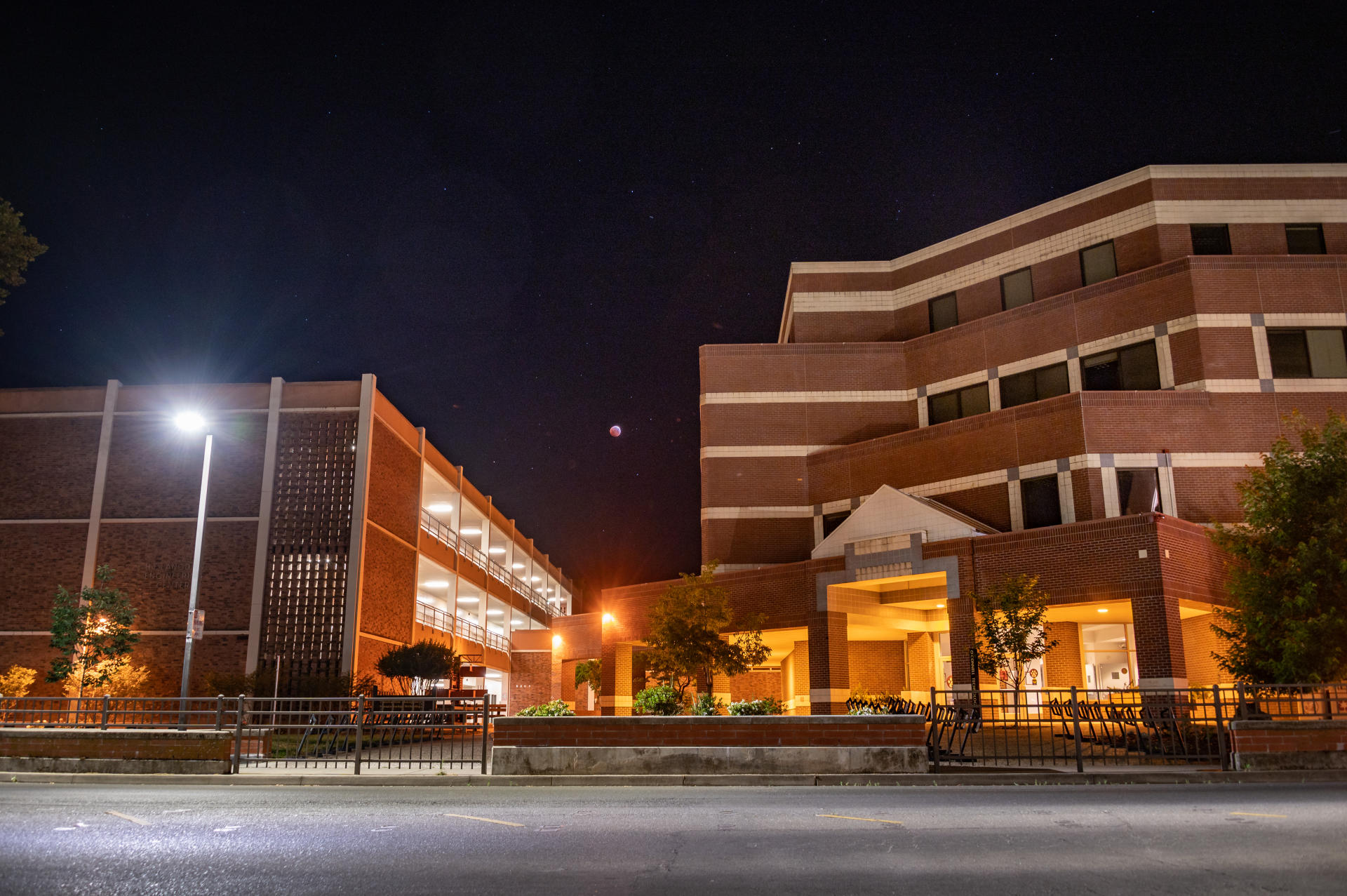Civil Engineering Faculty Awarded $1 Million Grant to Study Lagoon Wastewater Treatment

A full lunar eclipse rises between Langdon Hall (left) and O’Connell Technology Center (right) on campus, which some people are calling it the Super Flower Blood Moon, early morning on Wednesday, May 26, 2021 in Chico, Calif. During the Super Flower Blood Moon, the full moon of May (known as the Flower Moon) will pass through Earth’s shadow, causing it to appear red. This is why total lunar eclipses are commonly called “blood moons.” At around the same time, the moon will reach perigee, or the closest point to Earth in its current orbit. This will make it appear slightly bigger than an average full moon, making it a “supermoon,” too. The whole event takes nearly three hours starting at 2:44 a.m., and by 4:18 a.m., it is fully eclipsed. (Jason Halley/University Photographer/CSU, Chico)
When lagoon wastewater isn’t treated properly, it impacts the quality of the water that grows crops, houses dozens of life forms and enters our bodies. Pablo Cornejo, associate professor in the Department of Civil Engineering, is looking at how to change that.
Cornejo is one of two recipients nationally to be awarded a three-year, $1 million grant from the Environmental Protection Agency (EPA) to focus on sustainable nutrient removal for small communities that have lagoon wastewater treatment systems. The project period for this research will run from January 2023 through December 2025, and Cornejo will lead the team from Chico State and University of California, Davis, representing the state’s Central Valley. Other research collaborators are at West Virginia University.
Cornejo explains that around 72 percent of wastewater systems in United States are considered small systems—serving 10,000 people or less—and include many communities in tribal regions, along the US-Mexico border and in small towns across rural parts of the United States.
“This work will help identify economically feasible and environmentally sustainable solutions for lagoon wastewater systems integrating nutrient removal,” he said. “Reducing nutrient pollution is needed to protect human and environmental health, avoiding issues like nitrate contamination of groundwaters and excess algal growth in surface waters.”
While Cornejo’s research will be done primarily in California, he will also broaden it to identify case studies representative of the arid, dry climate of Western United States. The project will also fund two student researchers each year during the summer and the academic term.
There is a critical need, Cornejo said, to provide accessible technical, economic and environmental data to promote contextual, cost-effective technology options to improve nutrient removal in lagoon systems in small communities. With this work, people, plants, animals, ecosystems, and so much more can experience tremendous benefits.
“We hope to identify cost-effective ways for communities to meet regulatory limits for nutrient removal, while reducing their carbon footprint,” Cornejo said. “This is important for long-term financial and environmental sustainability in areas with limited resources.”
Cornejo holds a bachelor’s degree in civil engineering with an emphasis on water resources and the environment from University of Colorado, Boulder; and a master’s and PhD in environmental engineering from University of South Florida, Tampa. He conducted post-doctoral research at the UC Boulder, and his other research interests include greenhouse gas models for water reuse and desalination facilities; the water-energy-food nexus; and water and sanitation issues in the developing world.
A faculty advisor for the Chico STEM Connections Collaborative, Cornejo is passionate about increasing the participation of underrepresented students in STEM fields through interactive, project-based sustainability education.


